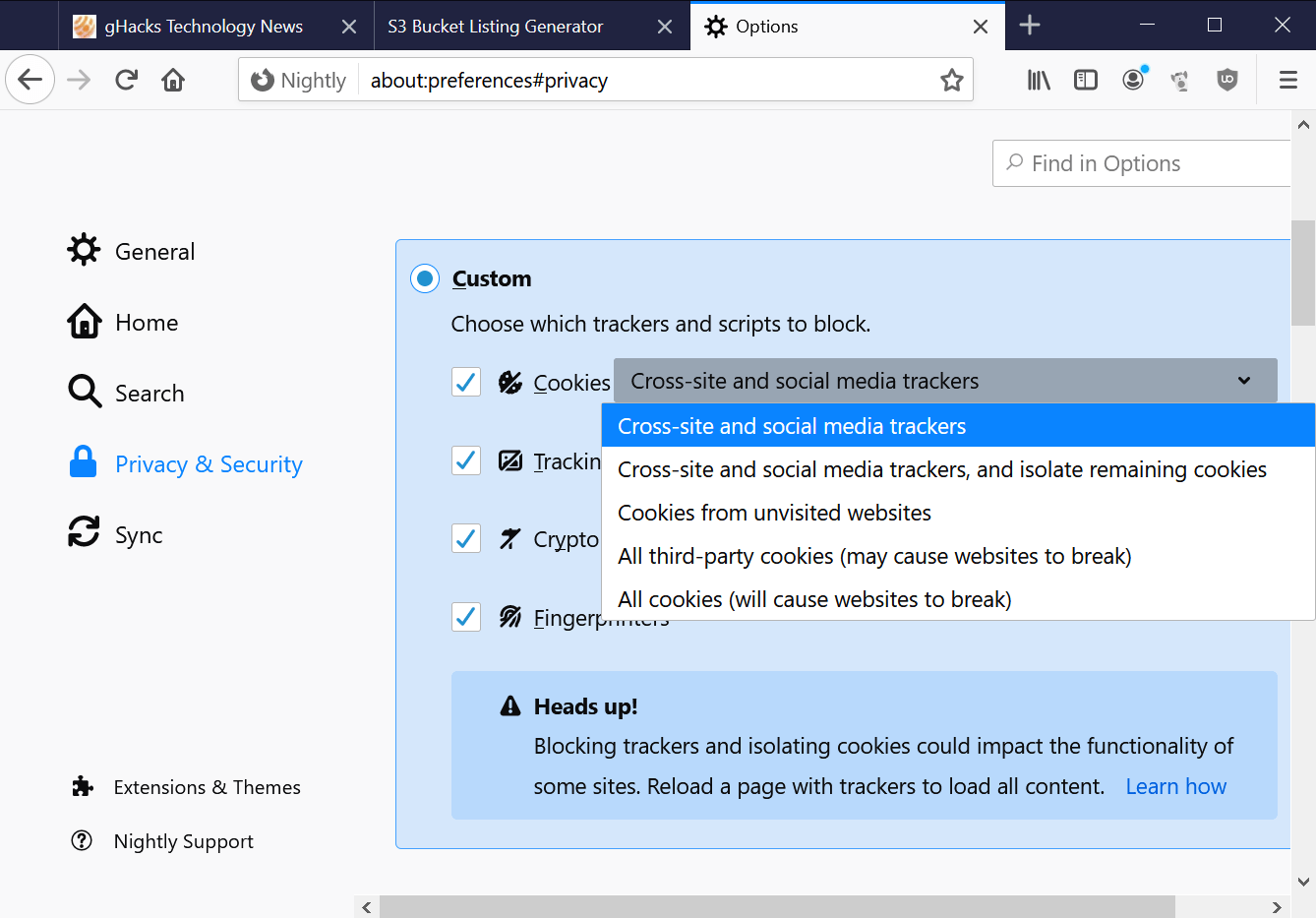Mozilla's work on the Firefox browser's tracking protection feature continues unhindered. The organization has now enabled a new option in Firefox 77, currently on the Nightly channel, that is called Dynamic First Party Isolation.
Firefox users may use tracking protection presets currently or create custom rule sets for blocking certain elements on websites that may be used for tracking.
When it comes to blocking cookies, the four custom options that are available in Firefox Stable are:
- Cross-site and social media trackers
- Cookies from unvisited sites.
- All third-party cookies (may break some sites).
- All cookies (will cause websites to break).
A fifth option has been added to Firefox 77 Nightly. To access the controls, load about:preferences#privacy in the Firefox address bar and select "custom" under Enhanced Tracking Protection. A click on the menu next to cookies should display the new option.
- Cross-site and social media trackers, and isolate remaining cookies.

A warning is displayed when the new cookie behavior is selected:
Blocking trackers and isolating cookies could impact the functionality of some sites. Reload a page with trackers to load all content.
Some sites may not function correctly if certain elements are blocked on them. Mozilla suggests that users disable tracking protection on the site by adding an exception, to allow it to load correctly in the browser.
Firefox users may also use the following preference, network.cookie.cookieBehavior, to change the cookie handling of the browser.
- Value of 1 -- Block all third-party cookies.
- Value of 2 -- Block all cookies.
- Value of 3 -- Block cookies from unvisited sites.
- Value of 4 -- New Cookie Jar policy (prevent storage access to trackers)
- Value of 5 -- Dynamic First-Party Isolation.
Note that tabs need to be reloaded before the new value takes effect.
Mozilla implemented First-Party Isolation in Firefox 55 as a Tor uplift feature. The feature has never been exposed as a preference in Firefox but users could enable it by setting privacy.firstparty.isolate to true in the Firefox web browser.
First party isolation means that all identifier sources and browser state are scoped (isolated) using the URL bar domain.
Cookies, Cache, Dom Storage, and more are affected by the preference if it is enabled in Firefox. One reason why it is not enabled by default by Mozilla is that it may break some websites when enabled.
Firefox users who have set privacy.firstparty.isolate in the browser won't see any change when they switch the cookie blocking value to include dynamic first-party isolation.


0 Comments